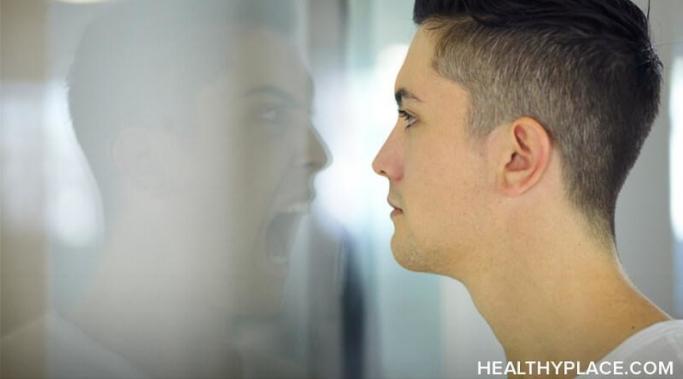Blogs
It's Not Fair That I Have a Mental Illness!
Right. Not Fair. I get it! It sort of sucks. I get that you're feeling self-pity over having a mental illness. We have a couple of options here: get over the fact we have a mental illness and carry on with life or keep on feeling bad for ourselves. Should we continue to wallow in self-pity over having a mental illness? No.
Sometimes, probably due to my particular experiences online, I think that people will never understand mental illness. There are people who think that mental illness isn’t real; there are people that think that medication is poison; there are people that think mental illness is “all in our heads’” there are people that think that those with mental illness just have to “pull themselves up by their bootstraps.” In short, sometimes it feels like there are so many uncompassionate, ignorant, hateful people that all the writing in the world won’t make a difference.
But the thing is, my experiences aren’t necessarily indicative of the real world. And yesterday’s brunch proved that to me.
Personality refers both to who you are at your core and how others perceive you to be. Personality is a slippery word because it includes both what you feel to be true about yourself and what other people think about you - your thoughts that lead to emotion (invisible) and behavior (visible).
So, on the one side of personality, we have the invisible core of "who you are" as defined by you. On the other side of personality, we have the visible version of you as defined by other people. Gurus say that "authentic people" are those who say as they do and do as they say. In effect, the goal of authenticity is to project your definition of yourself to everyone else consistently, and align the invisible with the visible.
21 October 2010
Too much strain. Too many failures. Never better. Never good enough. I can't handle it anymore.
Sorry,
I love you,
Angela
I had tried. God knows I had tried, but I couldn't seem to recover from anorexia no matter what I did. I just couldn't seem to find the strength to get better and really live.
So I decided to kill myself. I climbed up on a chair, wrapped my favorite red scarf around my neck several times, and then tied it to the chandelier in my dining room. I made sure it was tight. All I had to do was kick the chair away from me.
I couldn't do it.
After the emotional abuse, or rather, after I left my abusive husband, I hoped the effects of abuse would disappear. Magically. Without any work from me.
Those hopeful feelings minimized the difficulty of coping with life and relationships after emotional abuse. The intelligent part of me knew that after the emotional abuse it would take time to recover from the emotional trauma and regain my mental health. Alas, the intelligent part of me was correct.
Christie Stewart
I have noticed that a lot of people think that only young adolescent, teenage girls self-injure. It's one of the most inaccurate stereotypes facing self-injurers. And I'm not the only one who feels this way. When I asked current self-injurers who visit my site what they thought the biggest misconception about self-injury was, a majority noted it was the perception that only teenagers self-injure.
As an adult, I can attest that adults self-injure, too - and, in this video blog, I aim to dispel that stereotype!
If you struggle with PTSD, then you're no stranger to thoughts about how you could die by suicide to end your pain and anguish. Even the strongest and most resilient person may have moments so challenging the best idea seems to be death. Although you may sink to that dark space, there is a way to pull yourself out, away from thoughts of suicide.
Bipolar disorder has an approximate prevalence in society of 1% and obsessive-compulsive disorder has an approximate lifetime prevalence of 2.5%. When you put those two numbers together, you should have a very small population that has both bipolar disorder and obsessive-compulsive disorder.
However, this turns out not to be the case. Actually, according to a recent study, 50% of people with obsessive-compulsive disorder also have a depressive disorder and 10% have bipolar disorder.
In short, if you happen to have both disorders, you’re not alone.
Okay. Take a minute and think about it. What comes to mind? Immediately, I think of when I was first diagnosed with bipolar disorder. And then I recall the years that followed: a feeling of loneliness that never seemed to leave me. A feeling I still struggle with. Even as I write these words and with the understanding that those who read them probably do understand. But it's not that easy--it never is.
Suicide is a difficult topic to discuss, especially with children, and yet more children are aware and exposed to the concept of suicide at earlier ages. Through media exposure, peers, or family, children are talking about this tragic topic. In this video, therapist Emily Roberts gives parents tips on approaching the conversation with your child and feeling safe and at ease in knowing that they are informed.

![MP900387256[1]](/sites/default/files/styles/blog_listing/public/uploads/2012/09/MP9003872561.jpg?itok=g3_xsZTm)




![MP900442726[1]](/sites/default/files/styles/blog_listing/public/uploads/2012/09/MP9004427261.jpg?itok=_AH3CRWY)

